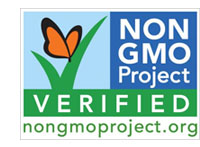24
Jul
Whole Foods Brands Will Carry “Non-GMO” Labeling
(Beyond Pesticides, July 24, 2009) Whole Foods Market, a leading natural and organic grocery chain, recently announced a commitment to the Non-GMO Project, a non-profit collaboration of manufacturers, retailers, processors, distributors, farmers, seed breeders and consumers, to use the Non-GMO Project’s Product Verification Program (PVP) in connection with Whole Foods Market’s private label products. The 365 Every Day Value and Whole Foods Market brands will be enrolled in the program, with the first products arriving on shelves this Fall.

While Federal law requires organic producers to comply with certain non-genetically engineered (GE) requirements identified in the USDA organic standards, there is no standard for labeling them in non-organic products. The PVP is the first system in the U.S.designed to scientifically test whether a product has met a set of defined standards for the presence of GE organisms (also known as GMOs, or genetically modified organisms).
“From the moment GMOs were approved for use in the U.S., we recognized the need for transparency, but there was no definitive standard by which to evaluate or label products,” said Margaret Wittenberg, Whole Foods Market global vice president of quality standards. “We searched high and low for years for a way to do this and now, thankfully, the Non-GMO Project has answered that challenge by creating a standard and a practical system by which manufacturers may measure their products. At last, shoppers concerned about foods made with genetically modified ingredients will be able to make informed choices.”
“Since there is no U.S. regulation regarding disclosure on products manufactured with GMO ingredients, we are committed to helping our shoppers make confident choices by knowing that what they are buying has been verified as meeting the standards on the non-GMO project,” said Michael Besancon, senior global vice president of purchasing for Whole Foods.
According to the FDA, as much as 75 percent of processed food in the U.S. may contain components from genetically modified crops. Despite the abundance of products with genetically modified ingredients, a Pew Initiative study on Food and Biotechnology shows that 59 percent of Americans are unfamiliar with the issue of genetically modified ingredients in food.
“In 30 other countries around the world, including Australia, Japan and all of the nations in the European Union, there are significant restrictions or outright bans on the production of GMOs, due to environmental impact and concerns about GMO safety,” said Megan Thompson, executive director of the Non-GMO Project.
The Non-GMO Project is a non-profit organization dedicated to allowing consumers to make informed choices and to working toward the sustained availability of non-GMO options. Whole Foods Market is a member of the group, which is a collaboration of manufacturers, retailers, processors, distributors, farmers, seed breeders and consumers. Together these members have established a working standard and have developed North America’s first independent third-party Product Verification Program.
The PVP uses a process that combines on-site facility audits, document-based review and DNA testing to measure compliance with the standard. For a product to bear the seal it must undergo a process through which any ingredient at high risk for genetic contamination – soy or corn, for example – has been shown to meet the non-GMO standard through avoidance practices and testing.
Once a product has been approved through the PVP it can be described as being verified by the Non-GMO Project and/or be labeled with the Non-GMO Project’s compliance seal. The first Whole Foods Market private label products to bear this seal are expected to be in stores before the end of the year.
There are a variety of reasons to avoid genetically engineered crops: links to infertility, corporate interference in science, legal threats to non-GE farmers, persistence in the environment, increased pesticide use, insect resistance, and risk to aquatic organisms. The organic label ensures that consumers can avoid all GE products, in addition to reducing toxic pesticide use and increasing environmental and public health. For more information on organic food, visit Beyond Pesticides’ program page.
In the absence of a federal labeling requirement for GE food, however, the Non-GMO label will help consumers identify non-organic products that can also avoid supporting GE crops. Unlike unclear or misleading “natural” and “sustainable” labels, “non-GMO” fulfills a specific purpose. Beyond Pesticides supports Whole Foods in identifying products that do not contain GE ingredients, but encourages the chain, as a certified organic retailer, to continue to promote organic foods as the most sustainable standard available.










